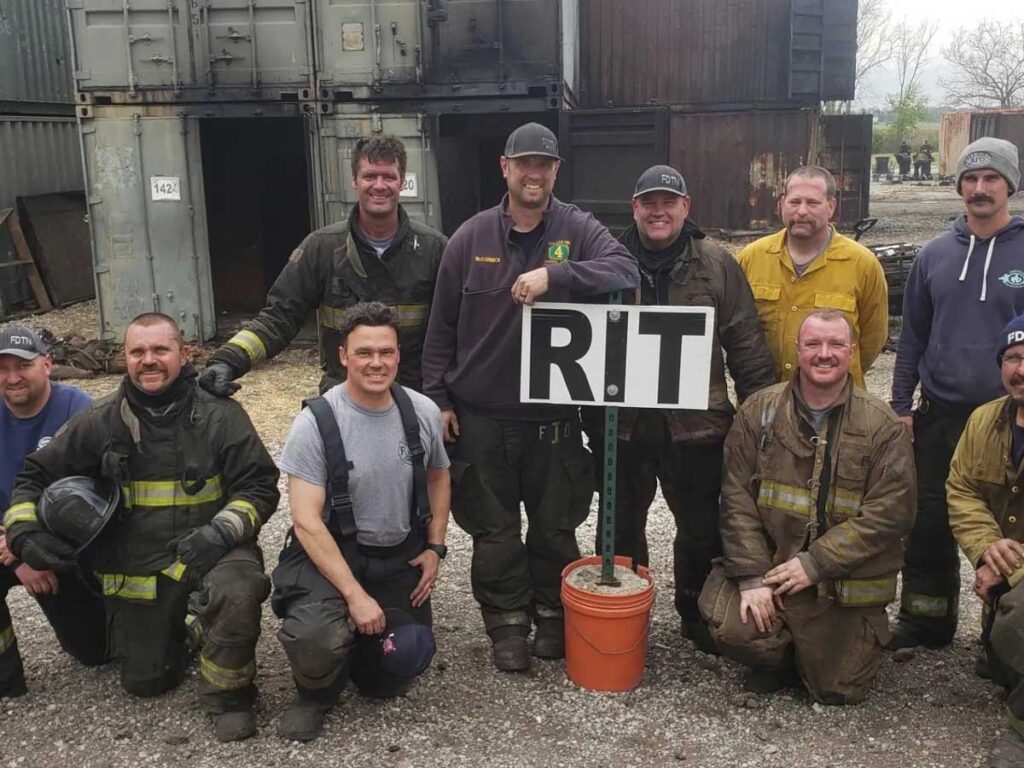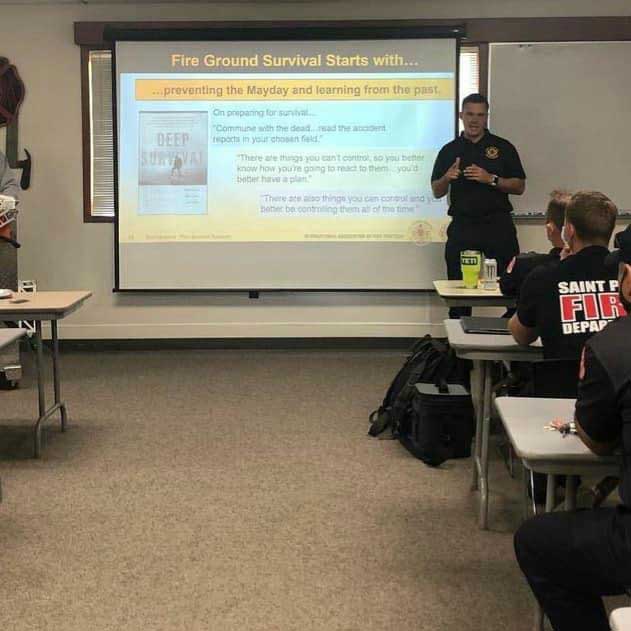By Kenny Hayes
via O2X
This topic has been sitting with me for a while. Countless hours have been spent brainstorming and analyzing just how I could put my thoughts and ideas into a concise and coherent article. One positive note is that the title itself remains virtually unchanged, no matter where I am in my career…just add a year!
- Training Minutes: Mindfulness and Mental Rehearsal
- Probie in the Firehouse
- 25 Things Probationary Firefighters Should Know and Do
- The Power of Being Proactive
I recently transferred and am now the captain of the busiest fire company in the City of Boston. Like most fire departments, it takes time in rank and a bit of luck to get to those certain spots. I am extremely grateful to be working there. As the captain of Ladder 4, I am the company commander of all four groups and direct supervisor to a crew of four firefighters on my shift. The other three groups have a lieutenant and four to five firefighters each. It is not uncommon here at “Dudley Street” to have firefighters with two decades of experience working on each group.
Mindset
My mindset going into my first tour there was already formed. I was open to learning, ready to listen, and more than capable of being part of a team. For me, the “ready” mindset is a “probie” mindset.
I fully understand the definition of a probationary firefighter, but I want you to think about the traits that exemplify a good “probie.” I use those traits to guide me in my day-to-day actions.
Some of the aspects of the “probie” mindset are pretty self-evident, no matter where you are in your career. Being early, looking professional, and actively listening to those around you are expectations of anyone starting in a new role. However, the thought process can be extended even further when you apply it to all aspects of the job.
Each new role, rank, or position can be attacked with the mindset that I must first prove my worth. This is accomplished only through action. Every new firehouse, or even shift, is an opportunity to reapply yourself and set in motion the steps to succeed.
As a new member of Ladder 4, I must step up as much as I can, whether it’s grabbing a broom first or volunteering to cook. I must prove my place within the group. I must be willing to be flexible and, most importantly, put myself out there. I can refer to the crew for how things have been done in the past and at the same time share some of what I expect. There’s no need to push out an agenda, but rather let the group dynamics play out. Inserting my expectations through effort.
Those efforts initially must set the tone of who I really am as a boss. For me, it’s all based on training, and this foundation must support all of my intentions. There is no better indicator of fireground success than company-level preparedness. This preparation starts long before I get to the firehouse.


Mental Preparation
My commute to work offers plenty of time to prepare mentally for the tour ahead. Weather conditions or scheduled training may sometimes dictate my initial thought process, but who I am actually working with defines my goals. Shift swaps, vacation tours, or members detailed out to other houses…all play a role in my planning. Regardless of who is there or what prior engagement the company may have, my gear readiness sets the tone. It is the first action I take upon entering the firehouse. My bunker gear is laid out in a way that works for me: hood hanging on the grab handle, radio checked, placed in my strap, and then draped across my coat. My thermal imager is placed under my helmet so that it’s not forgotten. The self-contained breathing apparatus (SCBA) is turned on, inspected, and, most importantly, bled by physically breathing it down.
There is no more comforting sound as a boss than hearing other members’ SCBAs being checked and alarmed in the morning. I take great satisfaction in knowing the crews prioritize this action before anything else. It reinforces that mindset drilled in all of us during our first year as probationary firefighters.
Company-level training and drills have not been officially added as part of our daily routine just yet on Ladder 4. Rather, our calls and dispatches form our basis of learning. Sleepless nights and nonstop days have awarded us with countless opportunities to fine-tune our skills and lead discussion points. No run should go to waste, and luckily we have more than enough for each tour.
Member Collaboration
Soon my crew will add another member, a “probie.” This will allow each one of us to contribute and, most importantly, reinforce what we expect. Drills will be relative and collaborative, with an emphasis on the basics. The “probie” will, in his or her own way, teach us. Each member will be a student of the other. The senior firefighter will be the first person I discuss ideas with and help develop any thoughts they may have. All our members will be encouraged to assist, but it is critical that specific individuals within the group are empowered to do so.
After 25 years, it may seem odd that I am preaching about a “probie” mindset, but for me, it just works. Over the last decade, I have been able to apply this thought process even further, through teaching. For me to be confident in teaching, I must be a constant student. Firefighter survival and rescue training has been my passion and foundation of learning. It has fed my desire to improve and, in particular, compels me to share everything I have learned. I still get nervous every time I teach, and those are real feelings I cannot control. Being uncomfortable, putting yourself out there, and feeling like you have something to prove is a strategy that works for me.
I have roughly 7 years left on the job, and I know I will still sometimes feel like that “probie” till the end.
Kenny Hayes is an O2X Instructor and currently serves as a captain with the Boston (MA) Fire Department (BFD). He’s also a native of Boston and proud Navy veteran. His most recent assignment is as Company Commander of Ladder 4, BFD’s busiest company. His 25 years of service with the city have allowed him the opportunity to focus on his passion—teaching and instructing the next generation of firefighters. His areas of focus have been developing and delivering courses based on firefighter safety as well as officer development. Kenny currently serves as a master instructor of Fireground Survival with the IAAF. This has enabled him to teach all over North America for the last four years. He also assists as an adjunct instructor with other private entities that focus on firefighter search and rescue throughout the year.
O2X Human Performance provides comprehensive, science-backed programs to hundreds of public safety departments, federal agencies, and the military. O2X works with clients to elevate culture, improve mental and physical wellbeing, support healthy lifestyles, and reduce healthcare costs associated with injuries and illnesses. Driven by results and cutting-edge research, O2X programs are designed and delivered by a team of Special Operations veterans, high level athletes, and hundreds of leading experts in their respective fields of human performance.

